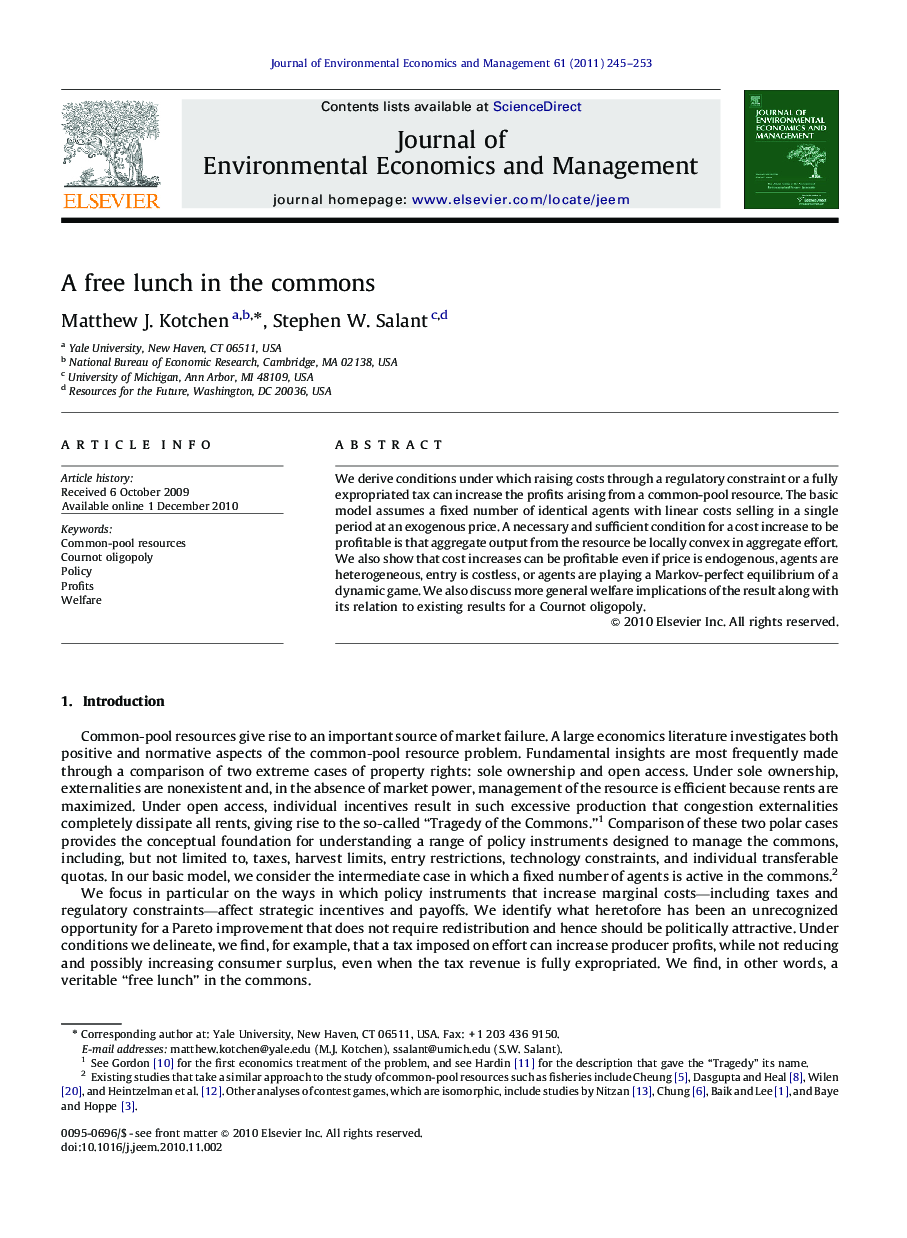| Article ID | Journal | Published Year | Pages | File Type |
|---|---|---|---|---|
| 959043 | Journal of Environmental Economics and Management | 2011 | 9 Pages |
We derive conditions under which raising costs through a regulatory constraint or a fully expropriated tax can increase the profits arising from a common-pool resource. The basic model assumes a fixed number of identical agents with linear costs selling in a single period at an exogenous price. A necessary and sufficient condition for a cost increase to be profitable is that aggregate output from the resource be locally convex in aggregate effort. We also show that cost increases can be profitable even if price is endogenous, agents are heterogeneous, entry is costless, or agents are playing a Markov-perfect equilibrium of a dynamic game. We also discuss more general welfare implications of the result along with its relation to existing results for a Cournot oligopoly.
